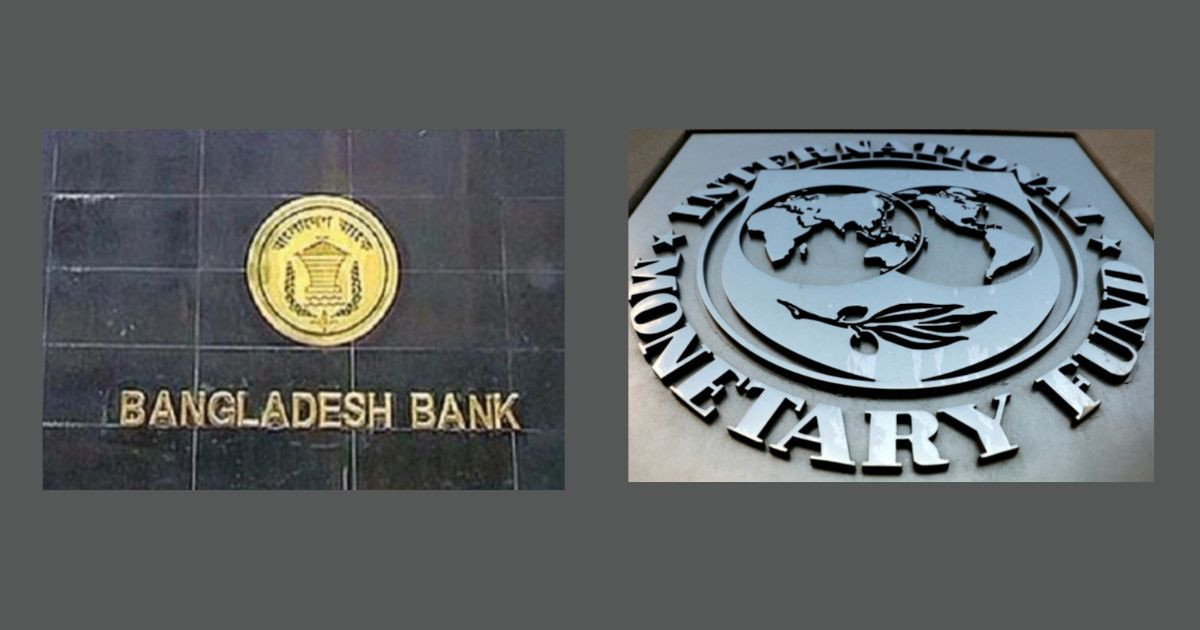
IMF-BB Meet : A rare case of printing money and giving it to a weak bank
 The International Monetary Fund (IMF) has imposed a condition to stop providing money from the central bank to keep weak banks operational. Because keeping weak banks operational by providing money disrupts the competition in the banking sector. This hinders the development of banks. In addition, the problems of this sector are hidden behind a veil. Which is now emerging as a boil. The IMF has called the incident of keeping weak banks operational by printing money and lending it under a special arrangement from the central bank as rare. They discussed these issues in several closed-door meetings of the Bangladesh Bank with the visiting IMF mission on Wednesday. They also discussed the autonomy of the central bank, the progress of the merger of five weak banks, the Bank Resolution Ordinance, and the risk-based supervision system to be introduced from January next year. The mission also held several meetings with the Finance Ministry on Wednesday. In those meetings, the IMF sought information on the government's financial situation and the overall economy, including budget management.
The International Monetary Fund (IMF) has imposed a condition to stop providing money from the central bank to keep weak banks operational. Because keeping weak banks operational by providing money disrupts the competition in the banking sector. This hinders the development of banks. In addition, the problems of this sector are hidden behind a veil. Which is now emerging as a boil. The IMF has called the incident of keeping weak banks operational by printing money and lending it under a special arrangement from the central bank as rare. They discussed these issues in several closed-door meetings of the Bangladesh Bank with the visiting IMF mission on Wednesday. They also discussed the autonomy of the central bank, the progress of the merger of five weak banks, the Bank Resolution Ordinance, and the risk-based supervision system to be introduced from January next year. The mission also held several meetings with the Finance Ministry on Wednesday. In those meetings, the IMF sought information on the government's financial situation and the overall economy, including budget management.
A government mission arrived in Dhaka on Wednesday to review the progress of implementing the conditions for the sixth tranche of the IMF's $5.5 billion loan to Bangladesh. On the first day, they held a series of meetings with Bangladesh Bank and the Ministry of Finance. The mission will remain in Dhaka until November 13 and will hold meetings with various government agencies.
Sources said that the meeting held at Bangladesh Bank in the morning was led by Deputy Governor Nurun Nahar. Other deputy governors, executive directors and other officials were present at the time. In the meeting, the IMF asked the central bank to stop lending money to weak banks to keep them operational. During the previous government's unprecedented looting in the banking sector, some banks became extremely weak. Those banks were kept operational by lending money under special arrangements from the central bank. Even then, the banks could not turn around. The IMF has called such incidents rare.
To borrow money from the central bank, a bank must pledge government or central bank-approved bills or bonds purchased by them. But the weak banks did not have any such bills or bonds. Still, the central bank gave them special consideration for loans. They even gave loans in printed money. As a result of these loans, the banks could not learn crisis management strategies. They could not also acquire skills by addressing their own weaknesses. Which has been identified as a major weak point for the banks.
In this context, Bangladesh Bank said that weak banks were previously provided with money based on political decisions. Now it is not being provided. The government is providing money for the merger of five banks. The central bank is not providing any money. However, in the future, the central bank may have to make concessions in policy support in some sectors. The central bank may make concessions in these sectors considering the risk of the bank.
Two more meetings were held at the central bank after noon. In those meetings, questions were asked about what kind of steps were being taken to ensure that the banking sector does not face any further crises in the future. In response, various steps taken by the central bank were mentioned.
Meanwhile, the IMF has already announced that the sixth installment of the loan was supposed to be released at the end of this year, that is, next December. They will not release it for now. Because when the elected government comes to power next February, they will decide to release the loan installment after talking to them.
Editor & Publisher: Ziaul Hoq Mizan
Address : 3/2 Outer Circular Road (4th Floor), Rajarbag, Dhaka, Bangladesh
© All rights reserved by Daily Morning Herald - 2024-25